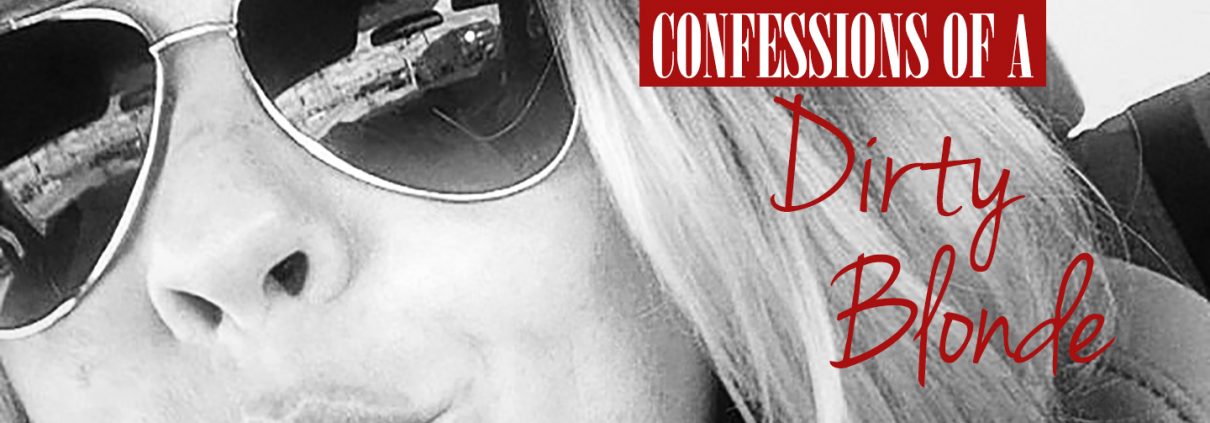How much raunch to put in sex scenes :: Confessions of A Dirty Blonde
I like it here. I have a great view and I can put Kahlua in my coffee before heading into the office, so that’s badass.
For those of you who missed the memo, I just left my career as a high school English teacher – so I could be here with you. And after my first post, you’re already sending me sweet vibes via email. How cool is that?
The first note I received was from an Amazon bestselling author who is concerned about how much raunch to put in her sex scenes. How to make the pages steam without burning her career.
So you’re telling me I get to talk about nasty things every week, while drinking morning cocktails? Yeah. Yep. Yes.
Bitch of a job this.
Here’s the question:
“I need tips on writing a love scene. I can write fuckhot love scenes when I’m writing erotica, but I can’t publish erotica. (Long story, but it comes down to I’m a teacher in a tiny rural community and omg-the-drama-it-could-cause.) But more than that, I don’t want to have to write erotica in order to write romance.
“Because of that, any love scenes I write are fade-to-black or vague, and even my own mother said she wishes I’d write something a little dirtier. (Isn’t she great?) So I’m wondering if you have any tips on how to write a decent love scene without having to cross the line to erotica.”
She had me at ‘fuckhot.’ And at the bit where she details her concerns because of her career. I taught in Podunk, Missouri (shout out to MoCo) in the beginning of my career, which is part of the reason I chose to begin writing with a pseudonym. Juggling professional and writing careers can pose problems if you’re supposed to be seen as a role model. So I understand entirely why she’s bound to PG-13 material – and I think her mom is badass.
Still, I’m not entirely sure there is technically much difference between writing romance and erotica. Most of us assume one is dirtier and kinkier, but they both have a similar goal, right? To arouse their audiences’ sexual desires.
The difference, I believe, is between an entire manuscript and a scene. Here’s my thought:
There is something smoldering hot about a sex scene refusing to give away all the details, letting the readers’ imaginations run wild.
Because of that, I don’t think she really has a problem at all, but an awesome opportunity to play with her words and flirt with her readers (like foreplay).
Here’s my suggestion:
I always love detailing bodies coming together, using verbs (enraptured, danced, grazed, etc.) to describe their placement, without coming out and saying anything about penis-and-vagina action (or other combinations of sexual organs).
An example?
“His hand grazed the curve of her lower back as she sank into the down comforter. She blossomed for him underneath his broad shoulders with her smooth legs intertwined and buckling around his waist.”
We’re not talking about penetration. Frankly, blossoming for him could mean many things. But imagery makes the reader see something and they will go wherever their imagination wants. That’s exciting (for them and you).
The rule I write sex scenes by is simple. If I would cringe saying it to one of my former bosses, I probably need to leave some of the dirty work up to the readers.
Erotica is great, if that’s what you want to write, but you don’t have to write an entire book of it, if you don’t want to.
Playing with unusual verbs and putting a metaphor on its proverbial back are two ways to get the point across without giving away the goods.
Funny, this is the second post I’ve referenced giving it all away (and my refusal to), yet here I am dishing out tips on how to make your work dirtier while avoiding a mud bath.
You guys sure put out one hell of an initiation.
Got writing questions for Lindsay? Email capo@rebeccatdickson.com. Confessions of a Dirty Blonde goes out every Thursday.


